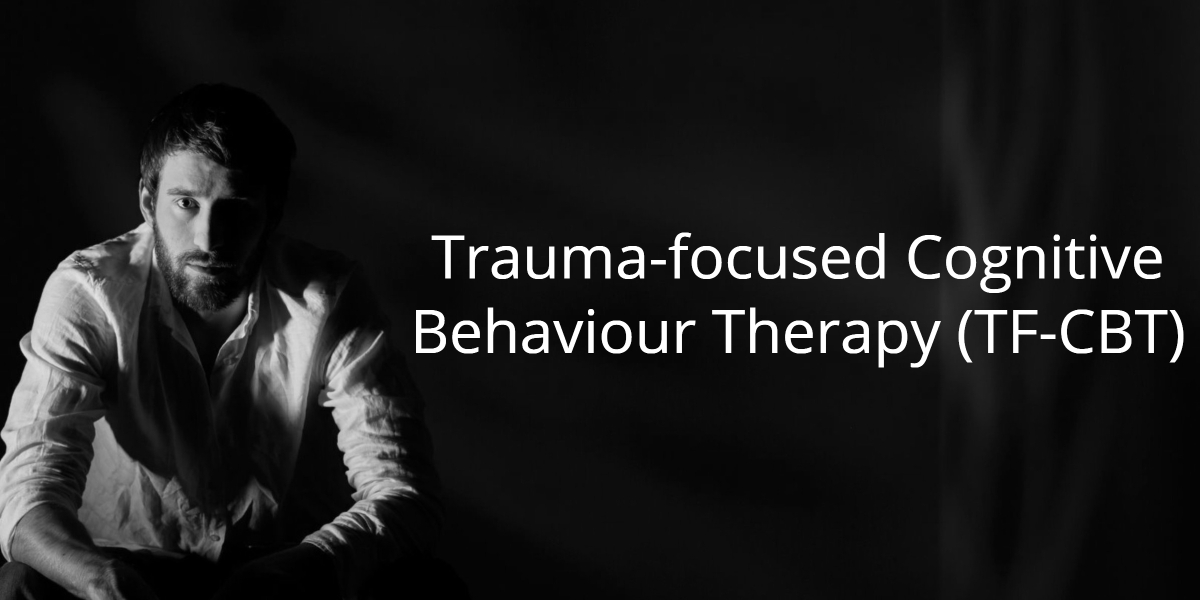
What is TF-CBT?
Trauma-focused cognitive behaviour therapy (TF-CBT) is an evidence-based therapy. It is specially designed to provide PTSD treatment for children, adolescents, adults and families to overcome the negative effects of a traumatic experience.
TF-CBT is proven to be an effective psychotherapeutic treatment for Posttraumatic Stress Disorder (PTSD). It is used by our therapists for clients who have been through either multiple or single traumatic events. Using this therapy are able to help children and adults suffering the emotional effects of trauma and resolve those effects.
The therapy requires a trust relationship between us (the therapist) and the client. So our therapists try to develop a trust relationship with you to understand yourself and your child, and then work with you to help you feel better. For children, we include parents in the therapy sessions.
It has been proven effective for treatment after multiple traumas or a single traumatic event, and therapists trained in TF-CBT are frequently able to help clients experiencing the emotional effects of trauma address and resolve these effects.
Here is a short video describing how this therapy works.
Alternatively, here is a picture that explains this process briefly. The picture has been taken from PTSD and evidence-based therapies.

The Development of Trauma-focused Cognitive Behaviour Therapy
TF-CBT was developed from the clinical work and research of Judith Cohen, Anthony Mannarino, and Esther Deblinger. They expanded the traditional cognitive behavioural methods and extended their reach by including family therapy and a trauma-sensitive approach during therapy to the children and youth.
Further Questions About Trauma-focused CBT
How long does TF-CBT last?
Trauma based CBT is designed to last 12 to 16 sessions. Statistics show that over 80 percent of traumatized children who receive this treatment improve after 12 to 16 sessions. However, our therapists may continue treatment over longer periods, if your child/family feels that some further issues need to be addressed.
We are able to use Trauma-focused Cognitive Behaviour Therapy as part of a larger treatment plan for children who present with complex difficulties.
Who needs TF-CBT?
This treatment is ideally for children and adolescents (ages 3 to 18) and their parents. The children and adolescents usually report emotional problems (e.g., symptoms of post-traumatic stress disorder, fear, anxiety, or depression) and can be related back to the traumatic events in the person life.
Children or adolescents experiencing traumatic grief can also benefit from Trauma-focused Cognitive Behavioural Therapy.
Skills learned during TF-CBT
Our therapists find that children and parents learn quite a lot of new skills during TF-CBT therapy. They usually relate to:
- Analysing the thoughts and feelings related to traumatic life events without being emotionally attached to them.
- Reduce distressing thoughts, feelings, and behaviours related to the traumatic events; and
- Improve the safety, growth, parenting skills, and communication among the children and the family.
Core Components of TF-CBT
- Psychoeducation and parenting skills
- Relaxation
- Affective regulation
- Cognitive processing of the trauma
- Trauma narrative
- In vivo mastery of trauma reminders
- Conjoint child-parent sessions
- Enhancing future safety and development
Does TF-CBT really works?
Trauma-Focused Cognitive-Behavioral therapy is recognised as an effective treatment for children who have experienced trauma.
It is clinically proven in multiple research studies to help children with PTSD and other trauma-related problems.
Furthermore, TF-CBT was rated a “Well-supported, efficacious treatment”, by the U.S. Department of Justice sponsored report on “Child Physical and Sexual Abuse: Guidelines for Treatment”. It is also recognised by Australian Psychological Society as a preferred treatment for adults and children with PTSD.
Booking An Appointment
If you wish to seek treatment for trauma or PTSD for yourself or someone else, please book an appointment with one of our psychologists.

